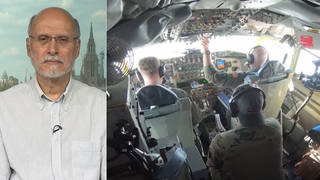
Belarus says Russia has begun transferring tactical nuclear weapons to the former Soviet state, which shares a nearly 700-mile border with Ukraine, escalating the risk of a nuclear confrontation in Europe. Meanwhile, U.S. Defense Secretary Lloyd Austin has urged allies to “dig deep” to provide more arms and ammunition to help Ukraine as it launches its counteroffensive against Russia. The Ukraine conflict has intensified the “new Cold War” between the United States and its allies, on one side, and Russia and China, on the other, says Gilbert Achcar, professor of international relations at SOAS University of London. He pegs the start of this new geopolitical standoff to the Kosovo War in 1999, which NATO entered without U.N. approval and over the objections of Russia and China. He says the United States had a “window of opportunity” in the 1990s to reshape the world for more cooperation and multilateralism. “Instead of going for peaceful options, options leading to a long-term peace in international relations and enhancing the role of the United Nations, it made the opposite choices,” including the expansion of NATO, says Achcar. His new book is titled The New Cold War: The United States, Russia and China from Kosovo to Ukraine.

 1 year ago
31
1 year ago
31


